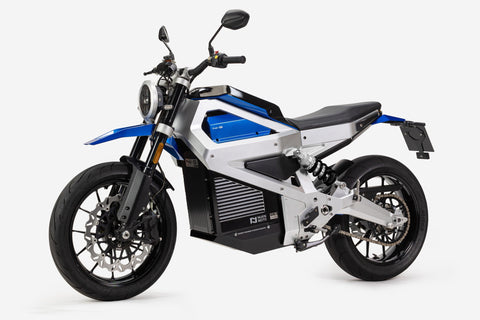Recently, following a wave of policy changes around electric vehicles and transportation infrastructure in Vietnam, NUEN MOTO has seen a surprising surge of interest from local users.
From simple questions like "Where is NUEN MOTO from?" to deeper inquiries about our technology, operations, and product development strategy — it’s clear that the Vietnamese community is increasingly curious and hopeful about a local EV brand like ours.
And because that attention means so much to us, the NUEN MOTO team would love to take a moment to answer these questions — openly, thoughtfully, and transparently. Not just to clarify, but to also share more about our journey, our perspective, and the values we’re committed to.
1. The Origin of the Brand
Q: So… is NUEN MOTO a Vietnamese company?


Fun fact:
The name “NUEN” isn’t just edgy. It comes from how foreigners often pronounce “Nguyễn” — Vietnam’s most common last name, and also the surname of our founder & design director, Gia Nguyễn. So yes, you can totally call us NGUYỄN MOTO.
With a clear mission — to build cleaner, stronger, and more exciting vehicles — NUEN MOTO isn’t just “an electric bike.” It’s a statement: Vietnamese people can create premium, desirable, and culturally unique products.
We’re more than just war history, rice fields, banh mi, and pho.
Q: If NUEN MOTO sets up HQ in another country in the future, would it still be a Vietnamese brand?
A: In today’s world, a brand’s identity isn’t defined by where its headquarters are. That’s often a strategic decision — whether for tax benefits, better financial systems, or logistical efficiency. But that doesn’t define the soul of a brand.
Take Grab as an example: It started as a Malaysian startup but later moved its HQ to Singapore for better access to capital and technology infrastructure. And yet, it’s still considered a proud "unicorn of Malaysia" and a leading brand across Southeast Asia.
So even if NUEN MOTO grows and sets up offices or headquarters elsewhere to support expansion, its Vietnamese identity — in product thinking, in the development team, and in every design detail — will remain unmistakable.
Articles you can check out:
2. Is the N1-S really a Vietnamese product?
Q: If most components of the N1-S are imported and only assembled in Vietnam, can we still call it a Vietnamese product?

You could refer to “localization rate” (the % of parts made domestically), but this is mostly a quantitative measure. It doesn’t fully capture the intangible value created through design, branding, product philosophy, or the cultural fingerprints of the people who make it.
Examples:
🧵 A Uniqlo T-shirt
Its cotton might come from the US or China, woven in Vietnam, stitched in Bangladesh, and sold worldwide. But it’s still seen as a Japanese product because its design, textile innovations (like AIRism, Heattech), and product philosophy all come from Tokyo.
📱 An iPhone
Its components come from over 40 countries — screens from Korea, chips from the US, sensors from Japan, batteries from China, assembled in Shenzhen. But no one calls it a “Chinese phone.” It’s clearly an Apple product, with American DNA from development to user experience.
This applies to almost everything around you. Grab any product nearby — chances are, its identity is defined more by the brand than where its components are made or assembled.

Some of the key components that define the N1-S’s performance and character — such as the exo-skeleton frame, the battery pack, and the rear suspension system — were developed in-house by the NUEN R&D team and produced in close collaboration with trusted partners. These aren’t just off-the-shelf parts slapped together.


“Localization rate” may be a technical metric — but it doesn’t reflect the soul of a product, which lies in its design, user experience, storytelling, and the cultural imprint of its creators.
In short:
The N1-S is a product with a Vietnamese identity — clear, confident, and full of character. That’s something far more meaningful than any percentage.
Articles you can check out:
You’re always welcome to test ride the N1-S and meet the NUEN MOTO team in person:
📌 Showroom: 11, Street 10, Sala Urban Area, Thu Duc City, Ho Chi Minh City, Vietnam
📞 Hotline: +84 766 204 468
📩 Email: ride@nuenmoto.com
We’re always happy to receive your questions and will do our best to answer them in full.
Once again, thank you for your curiosity and for being part of this journey with NUEN MOTO.



